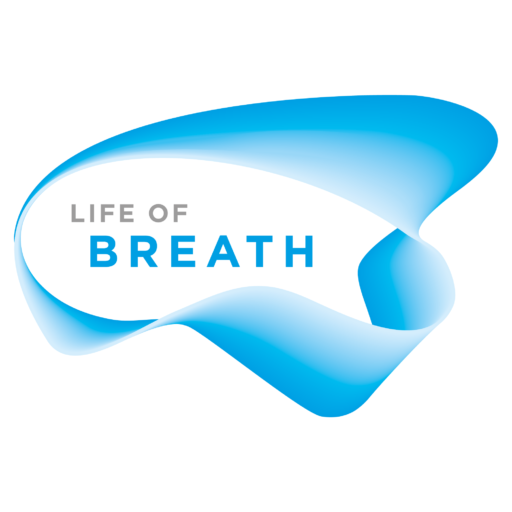Nothing but blue skies
This post is written jointly by Jess Farr-Cox (Life of Breath Project Manager (Bristol) and recently back from a trip to Hangzhou, PR China), and her father David Scoins (lifelong runner, sometime sports teacher and resident in China 2007-2014). The title is of course a quotation from ‘Blue Skies‘ by Irving Berlin.
The start of the Rio Olympics may put one in mind of other sporting occasions, and the challenges to the breathing that pushing one’s body to its limit may present. For example, consider the 2015 World Championships in athletics, which were held in Beijing, one of the most polluted cities in the world. During the marathon, the combination of heat, humidity and air pollution proved too much for all the pre-race favourites, and the marathon was won by a virtually unknown Eritrean teenager, Ghirmay Ghebreslassie[1], whose ability to cope with the conditions over-rode all other considerations. Similarly, older followers of distance running may recall the great Australian runner Ron Clarke, and will be well aware of his problems at the 1968 Olympics in Mexico City, where athletes experienced an unprecedented combination of very thin air at altitude and heavy air pollution. There were forty recorded cases of altitude sickness at the Mexico City Olympics among the rowers alone. For Ron Clarke, the thin air and pollution caused him problems with his breathing that neutralised him as a competitor. This is not trivial: Ron Clarke was an exceptional runner, with multiple world records to his name, including taking nearly forty seconds off the world record for the 10km. His health was permanently damaged by his experiences in Mexico City, a fact touched on in many of the obituaries written for him last year.
For those living (and running) in Beijing, as David did for a while, the Air Quality Index (AQI) rules your life (see David’s essay ‘Air Quality Issues‘). There are several constituent parts, but the critical one is the measure of air-borne small particulate matter, PM2.5, simply because the body cannot eliminate these particles.[2] In Britain any reading in three figures (120 is a disaster) causes public and media outcry. In Beijing, the meter (whose figures can be accessed by phone apps) is on the roof of the US embassy and one would read this many times a day so as to judge whether to be outside. One sensible school response has been to construct large volumes of ‘clean’ space by adding non-rigid structures (such as domes) and then filtering the air within. In January 2013 the average PM 2.5 figure was 300, with 750 exceeded twice, and very briefly a figure of 899.[3]
Beijing Chinese refer to the 2015 international athletics meeting causing factories to be closed and traffic to be restricted; in the build-up to the 2008 Beijing Olympics, drivers were asked to drive on alternate days depending on the registration number of their vehicles in an effort to reduce air pollution. China is slowly getting to grips with the problem of air quality, but it is not helpful that Beijing has mountains on three sides, which ‘hold’ pollution over the city. At David’s school, we did no sport at a reading of 150 and at 200 no-one went outside. Cycling to and from school left a visible residue on the outside of one’s facemask within a week. One gave up and went to the (clean, air-conditioned) gym instead for exercise.[4] Jess and David both recall a Chinese student commenting on a similar paradox in his UCAS personal statement. The student’s English name was Benny, and he was hoping to study Environmental Engineering. He wrote as follows:
As I grew up, I was always jogging and it made me healthier and stronger. However, with the air pollution I developed pneumonia. The issue of environmental damage is a personal one with me. At an early age I had to quit jogging for my health, which seems a contradiction: how can I care for my lungs? I have made up my mind to spend a lifetime to stop others from suffering from this problem and those related problems that afflict people when the natural environment is being destroyed by the many forms of pollution.
As a runner in a polluted atmosphere, 150 is horrible; you can taste the air in a metallic way and performance is significantly down. If the urge to beat the clock beats the reluctance to run hard, then each such event leaves a lasting effect. Older runners compensate for the passage of time by referring to age-grading figures, which allow you to compare results now with results from years ago. So, for example, David’s time for a 10km race might be four minutes slower than 10 years ago, but at the same time could give the same age-grading figure. David was slowly improving on this scale, while steadily decaying in absolute terms at around 1% per year. Since moving to Beijing, David has had a reduction of 5% which, despite his best efforts at more intelligent training, seems to be irreversible. Britain has wonderfully clean air, because what manufacturing takes place here is done responsibly and car engines are becoming rapidly cleaner. Beijing is one of many cities around the world with bad pollution problems, and, as we are steadily encouraged to spend more time taking exercise, so the problems and consequences of exercising in a polluted atmosphere come to light. Jess remembers commenting as a small child on the lead runner of road races running close behind the guiding motorcycle and/or TV-camera-carrying vehicle. Surely they breathe in all kinds of pollution while doing so? Is the front, therefore, the best place to be? Five metres off the pace might be better from a long-term lung function point of view.
On saying, in class during his first term in Xi’an, ‘The sky is blue’, David was struck by the extra blankness of response and was able to repeat it in Mandarin and ask what the correct phrase would be. The reply was ‘white sky’ and we went around a few times until David was sure they were saying that ‘the sky is white’. They were right, for we had but one day in the whole of that school year with blue sky. The white sky is now the norm in many Chinese cities. In Xi’an, for example, the sky is white 350+ days of the year, and blue is rare enough to have labels. In Beijing the smog is common enough that you can’t see a kilometre away except when the factories are forced to close. At a weekend, that is not enough time to clear the air unless there is a storm to help blow it all away. Out along the Great Wall, blue sky is more common, but even there a blue sky day is a rarity. On this particular ‘blue sky day’ in Xi’an, we could see the Qin Ling mountains, a mere 30km or so away (see Jess’s photograph of these mountains above). The foreign staff already knew them, but many kids were saying they had never known they were there: they had never been able to see them from any appreciable distance before.
[1] No relation to his far more illustrious namesake, the Ethiopian athlete Haile Gebrselassie, who is no stranger to running marathons in polluted cities himself, having won the Dubai marathon three times. He he has also won the Berlin marathon four times (one of Europe’s cleanest cities in terms of air quality).
[2] See, for example, <http://www.livefrombeijing.com> which shows figures 2008-2014 with a graph for the annual mean.
[3] See David’s essay ‘More on Pollution‘ for some detailed facts and figures.
[4] See our previous joint post ‘Who was chasing him?‘ on other, similar compromises.




1 Comment
Pingback: ‘Don’t drink the water and don’t breathe the air!’ – Life of Breath